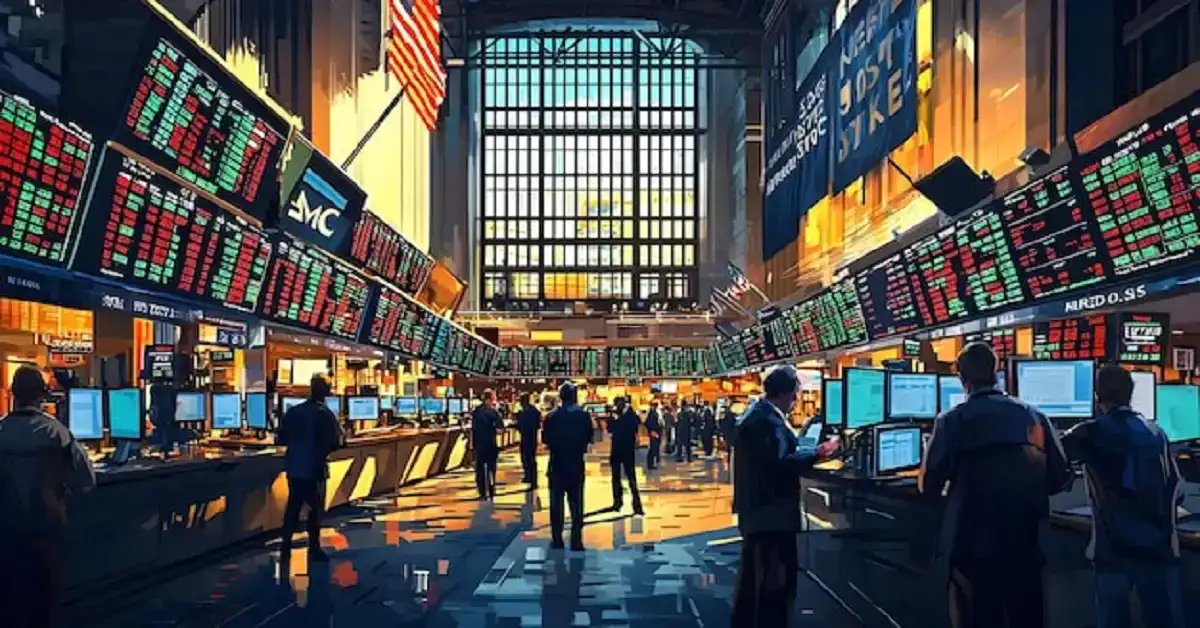Reddit S1 WallStreetBets: The Phenomenon Shaking Up Wall Street
Introduction
In recent years, the intersection between social media and the financial markets has transformed in unprecedented ways. Among the key players in this revolution is WallStreetBets (WSB), a popular subreddit on Reddit known for its high-risk, high-reward trading strategies. With the onset of the COVID-19 pandemic, financial markets became more volatile, and retail investors discovered the power of collective action, which WallStreetBets embodied. This trend caught the attention of major financial institutions, including Bloomberg, and was widely reported in mainstream financial media.
This article delves into the S1 WallStreetBets phenomenon, how it impacted the financial markets, and its significance in the context of both retail and institutional investors.
What is WallStreetBets?
WallStreetBets is a subreddit, a part of the larger Reddit community, where millions of users gather to discuss stock trades, options, and investment strategies. Founded in 2012, WallStreetBets was initially a niche group of traders who engaged in humorous, sometimes reckless, conversations about the stock market. What sets WSB apart from other investing communities is its unapologetic approach to high-risk investments, often involving speculative trades on short-term stock options.
The community gained significant notoriety when they took on major hedge funds in early 2021 through the GameStop (GME) short squeeze event. WallStreetBets has since been a pivotal player in pushing certain stocks to new heights or causing dramatic market shifts, often referred to as “meme stocks.”
The GameStop Short Squeeze: WallStreetBets’ Defining Moment
One of the most impactful moments in the history of WSB came in January 2021 with the GameStop short squeeze. Hedge funds had heavily shorted GameStop’s stock, believing that the company was headed for failure. However, members of WallStreetBets identified this as an opportunity and began buying large quantities of GameStop shares, driving up the stock price dramatically.
This created a “short squeeze,” where the hedge funds that had bet against GameStop were forced to buy back shares at much higher prices to cover their positions, resulting in astronomical losses. Some hedge funds, like Melvin Capital, suffered massive losses. This event catapulted WallStreetBets into the global spotlight, with financial institutions like Bloomberg covering the story extensively.
The Impact on Financial Markets
The GameStop short squeeze shook traditional finance in several ways:
- Retail Investor Empowerment: For the first time in modern financial history, a group of retail investors, often ridiculed by institutional traders, managed to outplay hedge funds. It demonstrated the potential power of online communities and collective action.
- Increased Market Volatility: Stocks like GameStop, AMC, and BlackBerry experienced extreme volatility as retail traders continued to pile in, betting on both the rise and fall of prices. This brought the SEC’s attention, with regulators stepping in to assess the influence of social media on financial markets.
- Spotlight on Options Trading: The high-risk nature of options trading, which had been a niche strategy in finance, became mainstream. WallStreetBets traders, some with minimal financial knowledge, were using advanced options strategies to try and make significant gains, bringing this type of trading into the public eye.
The Role of Reddit and the Spread of Information
Reddit, the platform that hosts WallStreetBets, became an integral part of the retail investing revolution. Users would post their trades, investment theses, and analyses, and the crowd would sometimes rally behind certain stocks. The “hive mind” approach enabled stocks to move drastically, often based on sentiment rather than company fundamentals.
This mode of investing brought both enthusiasm and criticism. Enthusiasts praised WallStreetBets for democratizing investing and challenging the traditional gatekeepers of Wall Street, while critics warned that the reckless trading strategies could lead to financial ruin for novice investors.
Bloomberg’s Coverage and Reaction
Bloomberg, one of the world’s leading financial news organizations, took notice of the WallStreetBets movement as it gained momentum. From its early origins to the height of the GameStop squeeze, Bloomberg analysts regularly featured commentary on how WSB’s activity was impacting market dynamics. Bloomberg also reported on regulatory inquiries and potential market reforms, making it clear that the WallStreetBets community was no longer just an internet sideshow, but a force to be reckoned with.
One aspect that Bloomberg continually highlighted was how traditional finance was evolving in response to the influx of retail traders empowered by social media. In one of its reports, Bloomberg noted that hedge funds were rethinking their strategies to account for the unpredictable influence of retail traders, forcing institutional investors to factor in sentiment-driven spikes.
S1 WallStreetBets: The New Wave of Retail Investing
S1 WallStreetBets refers to the latest wave of retail investors who have entered the market post-GameStop. This new generation of investors follows in the footsteps of their predecessors but comes equipped with more knowledge, tools, and access to financial markets. The S1 WallStreetBets crowd tends to favor:
- Options Trading: Just like their forebears, the S1 investors are heavily involved in speculative options trading, though with a more refined understanding of risk management.
- Meme Stocks: The GameStop saga cemented the idea that stock prices can be moved based on sentiment alone. S1 WallStreetBets continues to drive interest in meme stocks, often pushing up stocks like AMC and Bed Bath & Beyond based on social sentiment.
- Cryptocurrency: A key difference with S1 WallStreetBets is the increasing focus on cryptocurrencies. Reddit traders have embraced coins like Dogecoin and Shiba Inu, applying the same meme-driven strategies from the stock market to crypto markets.
WallStreetBets vs. Institutional Finance
One of the most significant narratives emerging from the WallStreetBets phenomenon is the conflict between retail traders and institutional investors. This dynamic has played out not just in the markets but also in the media, with publications like Bloomberg offering analysis on how WallStreetBets and similar movements are reshaping the investment landscape.
Institutional investors, traditionally dominant players in the market, now face the challenge of accounting for retail traders’ unpredictable moves. Hedge funds, in particular, have had to adjust their short strategies to avoid a repeat of the GameStop debacle. In response, many funds are paying closer attention to social media trends, sentiment analysis, and even hiring teams specifically tasked with monitoring Reddit and other platforms.
Regulatory Scrutiny and the Future of Retail Investing
In the wake of the GameStop short squeeze and the rise of retail traders through WallStreetBets, regulatory bodies like the SEC and FINRA have turned their attention to how social media impacts market behavior. There have been discussions about regulating retail trading apps like Robinhood, which facilitated much of the WallStreetBets-fueled trading frenzy.
One key issue regulators are focusing on is market manipulation. While WallStreetBets insists that its members are simply engaging in free-market activities, critics argue that coordinated efforts to drive up stock prices, especially for short squeezes, could cross into manipulation territory.
Despite this scrutiny, the future of retail investing looks bright. WallStreetBets and similar movements have shown that technology and social media have democratized access to financial markets. Retail investors no longer need to rely on traditional brokerages or be confined to institutional narratives. With more tools at their disposal and communities to lean on, retail investors are here to stay.
Conclusion
Reddit’s WallStreetBets represents a seismic shift in the way retail investors interact with financial markets. What began as a niche online community has now become a powerful force capable of moving markets and challenging institutional finance. As WallStreetBets continues to evolve, with the emergence of the S1 generation, it’s clear that the line between retail and institutional investing is becoming increasingly blurred.
With financial institutions like Bloomberg closely watching and reporting on these developments, one thing is certain: retail traders, once sidelined, are now a driving force in modern financial markets. Whether this influence will continue to grow or face regulatory challenges remains to be seen, but the democratization of finance is well underway, thanks to platforms like Reddit and communities like WallStreetBets.



